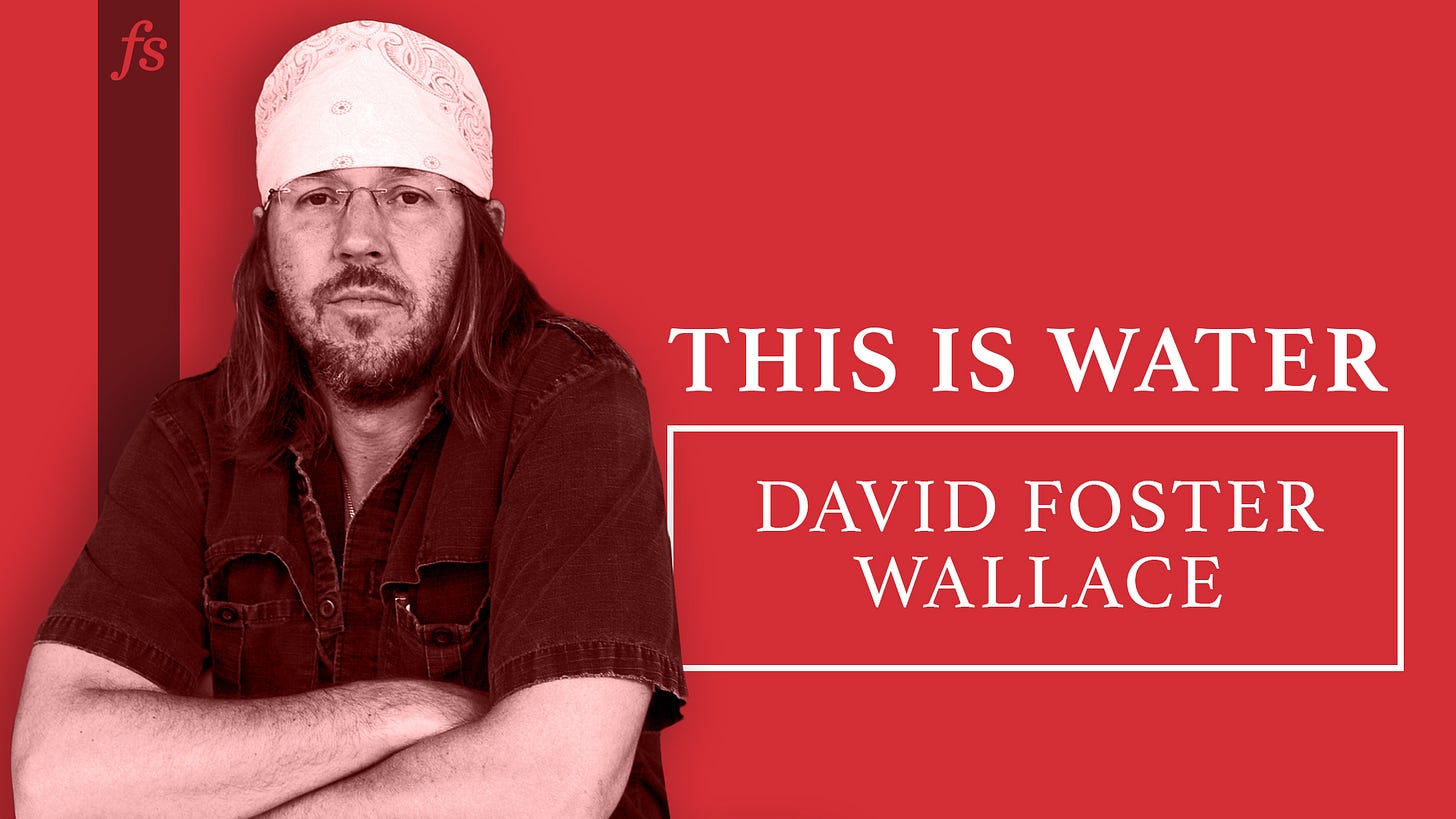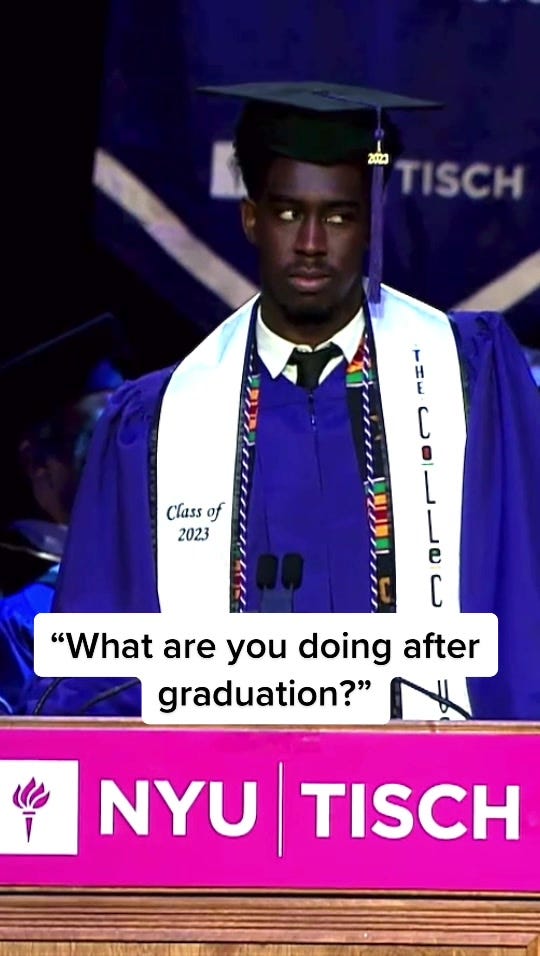Welcome to The Aftergrad Weekly, a curated media bundle to keep you informed, inspired, and entertained. Every Tuesday, we share a selection of articles, something to watch, an interesting quote, and links worth consuming.
QUOTE OF THE WEEK
We recently participated in a Gen Z survey conducted by Irregular Labs and the Walton Family Foundation that polled our perspectives on what it means to be alive. The way they defined “being alive” was quite compelling.
Alive represents the feeling that you get from pursuing something that gives you a deep sense of purpose and meaning in your life over time, and which plays to your unique potential and strengths. Often it is the outcome of doing something of service to others. When you are alive, the stars align between your passions and the unique gifts you can offer and what the world needs — it provides the energy for you to want to get up everyday and go after it, and it acts like a compass, keeping you headed in the right direction.
WEEKLY READ
This is Water | by David Foster Wallace

American novelist David Foster Wallace gets real in his 2005 commencement speech to the graduating class at Kenyon College. He acknowledges the realities of adult life that often go overlooked in speeches meant to inspire the next generation of leaders. His wisdom brings to life the utter monotony of daily living, which every person must contend with.
And I submit that this is what the real, no bullshit value of your liberal arts education is supposed to be about: how to keep from going through your comfortable, prosperous, respectable adult life dead, unconscious, a slave to your head and to your natural default setting of being uniquely, completely, imperially alone day in and day out. That may sound like hyperbole, or abstract nonsense. Let’s get concrete. The plain fact is that you graduating seniors do not yet have any clue what “day in day out” really means. There happen to be whole, large parts of adult American life that nobody talks about in commencement speeches. One such part involves boredom, routine and petty frustration. The parents and older folks here will know all too well what I’m talking about.
By way of example, let’s say it’s an average adult day, and you get up in the morning, go to your challenging, white-collar, college-graduate job, and you work hard for eight or ten hours, and at the end of the day you’re tired and somewhat stressed and all you want is to go home and have a good supper and maybe unwind for an hour, and then hit the sack early because, of course, you have to get up the next day and do it all again. But then you remember there’s no food at home. You haven’t had time to shop this week because of your challenging job, and so now after work you have to get in your car and drive to the supermarket. It’s the end of the work day and the traffic is apt to be: very bad. So getting to the store takes way longer than it should, and when you finally get there, the supermarket is very crowded, because of course it’s the time of day when all the other people with jobs also try to squeeze in some grocery shopping. And the store is hideously lit and infused with soul-killing muzak or corporate pop and it’s pretty much the last place you want to be but you can’t just get in and quickly out; you have to wander all over the huge, over-lit store’s confusing aisles to find the stuff you want and you have to manoeuvre your junky cart through all these other tired, hurried people with carts (et cetera, et cetera, cutting stuff out because this is a long ceremony) and eventually you get all your supper supplies, except now it turns out there aren’t enough check-out lanes open even though it’s the end-of-the-day rush. So the checkout line is incredibly long, which is stupid and infuriating. But you can’t take your frustration out on the frantic lady working the register, who is overworked at a job whose daily tedium and meaninglessness surpasses the imagination of any of us here at a prestigious college.
Read or listen to the full commencement speech here.
WEEKLY WATCH
The Chair on Netflix
Starring Sandra Oh and Jay Duplass, this six-episode comedy-drama is set at a prestigious university where the first woman of color has been named Head of the English Department. As the school’s course enrollment declines sharply and internal politics impact faculty hierarchy, the limited series captures the many crises threatening higher education, such as the antiquated teaching methods of humanities disciplines and the inflated expectations for female educators and non-white professors.
ADDITIONAL LINKS
On Purpose, Meaningful Activism, and Deciding What To Work On
Hunter S. Thompson’s Letter on Finding Your Purpose and Living a Meaningful Life
Choose the Activism That Won’t Make You Miserable by Arthur C. Brooks
What Should You Work On? by David Perell
Subscribe to The Aftergrad Newsletter for free to receive posts like these, advice columns from Dear Aftergrad, and much more directly in your inbox.
Until next time,
Your fellow aftergrads, Robert Cain & Victoria Gilbert









